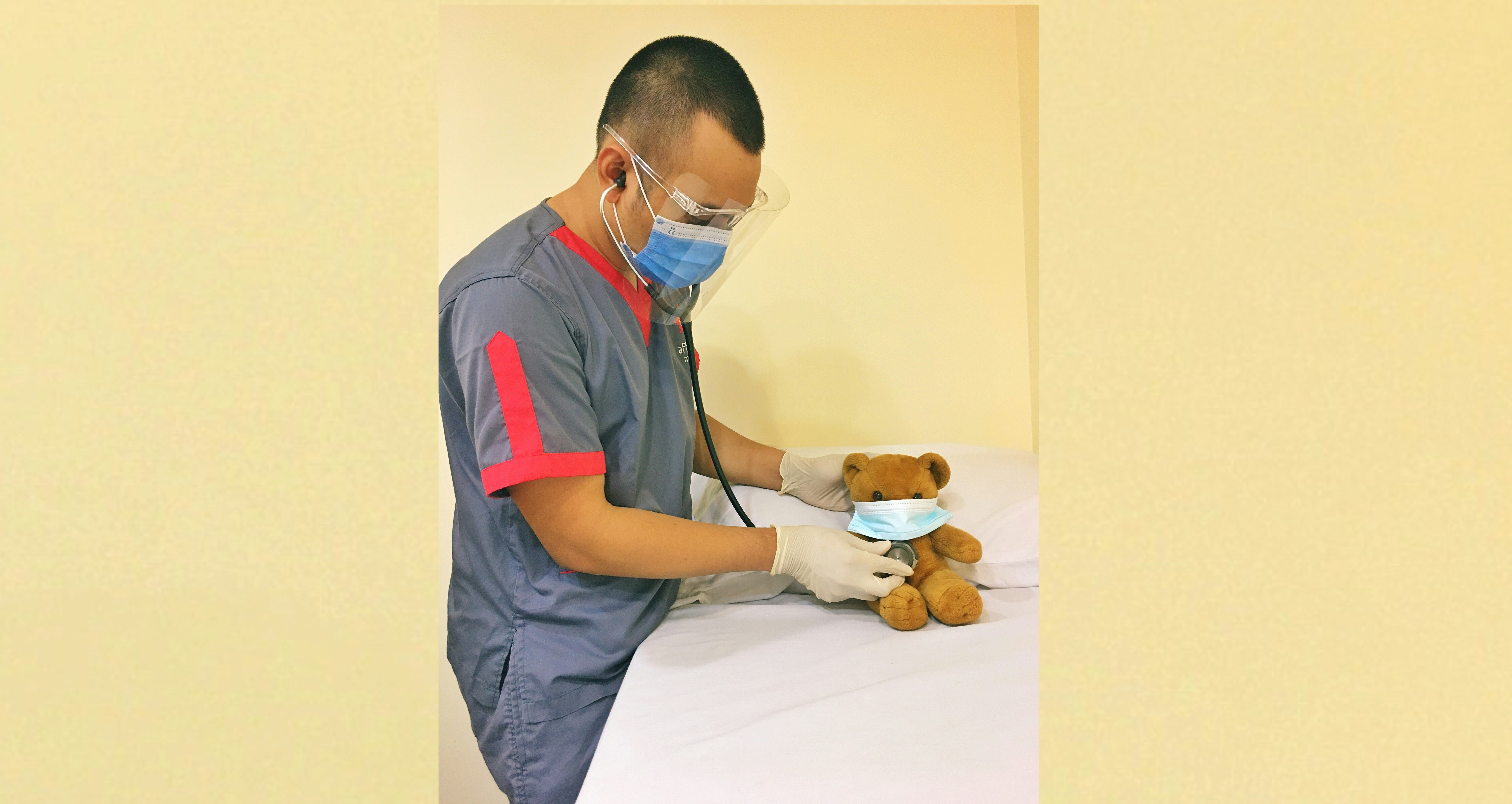News release
From:
An in-depth study of adaptive immune response to SARS-CoV-2 infection concludes that children under 5 years old have a different response compared with older children and adults. The findings make it clear that young children are not “little adults” when it comes to SARS-CoV-2 infection, and that adaptation to immune threats such as the virus develop progressively through childhood to adulthood, according to Benoît Manfroi and colleagues. They examined adaptive immune responses in 89 people, including preschoolers, older children, and adults with mild or severe COVID-19, before, during, and 11 months after infection. Manfroi et al. found that during SARS-CoV-2 infection, children under 5 had a lower and phenotypically different antiviral CD4+ T cell response compared with older children and adults with mild disease. Adults with severe disease also had a distinct CD4+ T cell response that differed from all other groups. After infection, preschoolers had a distinct set of memory T cells with high inflammatory features compared with adults, and fewer virus-reactive memory B cells compared with older children and adults. As the researchers point out, the COVID-19 pandemic provided a unique opportunity to compare specific adaptive immune responses between age groups, because there was no viral-specific immune memory to the novel coronavirus in adults to complicate the comparison.
Expert Reaction
These comments have been collated by the Science Media Centre to provide a variety of expert perspectives on this issue. Feel free to use these quotes in your stories. Views expressed are the personal opinions of the experts named. They do not represent the views of the SMC or any other organisation unless specifically stated.
Associate Professor Amanda Kvalsvig, epidemiologist in the Department of Public Health, University of Otago Wellington
The findings of this study are consistent with what we see in many other infectious diseases (RSV, for example): infants - that is, children aged under 1 year - tend to be more susceptible to infections and to have more severe outcomes than older children. One reason for this difference is that the immune system of young babies is configured differently from older age groups, as shown in this study and in other research.
"What this means in practice is that in early life babies need to be protected from circulating infections because they may not mount a robust and enduring immune response to infections. We can see this effect clearly with Covid-19 where young babies have more severe outcomes than older children.
"These patterns are obscured by reporting that typically lumps babies with older children, combining ages from birth to 9 years or even older. This practice means that worse outcomes in infants can be missed: age matters enormously in childhood infectious diseases and infants have unique vulnerabilities.
"This study showed different immune responses to Covid-19 in under-fives. We need to take notice. In New Zealand, preschoolers are highly exposed to Covid-19 infection and reinfection through infectious contacts both at daycare and at home with school-aged siblings.
"Effective vaccines for young children are available overseas but not in NZ. Given what we know about the effects of early-life infections on longer-term health and specific concerns about the impact of Covid-19 on children’s longer-term health and development, parents should have the choice to vaccinate their children.
"We also need to ensure that clean indoor air is standard in early childhood settings. NZ has high rates of respiratory infections in children and it's clear that the youngest members of the community need far better protection than they are currently getting.
Dr Gergely Toldi, Senior Lecturer in Neonatology at the Liggins Institute
The emergence of the SARS-CoV-2 pandemic provided a unique opportunity to compare how the immune system of different age groups responds to a threat it has not encountered before, because there was no specific immune memory to the novel coronavirus in adults to complicate the comparison.
"This study from France highlights that the response to infectious threats develops progressively through childhood to adulthood, and that the immune system of young children copes differently, but not necessarily less efficiently compared to older individuals, with a new infection it had not encountered before.
"This finding supports earlier observations that the immune response of babies and young children is not “immature”, as often labelled, but rather meets different requirements raised by the stages of development.



 International
International


